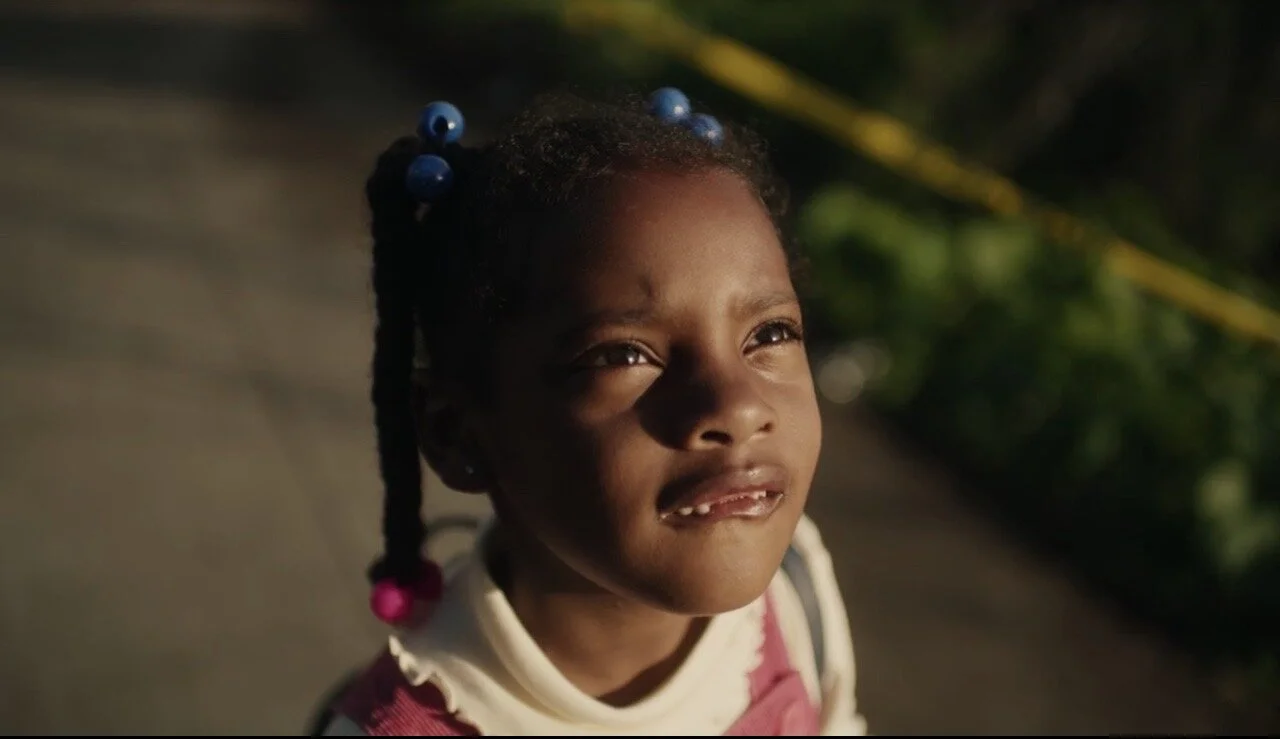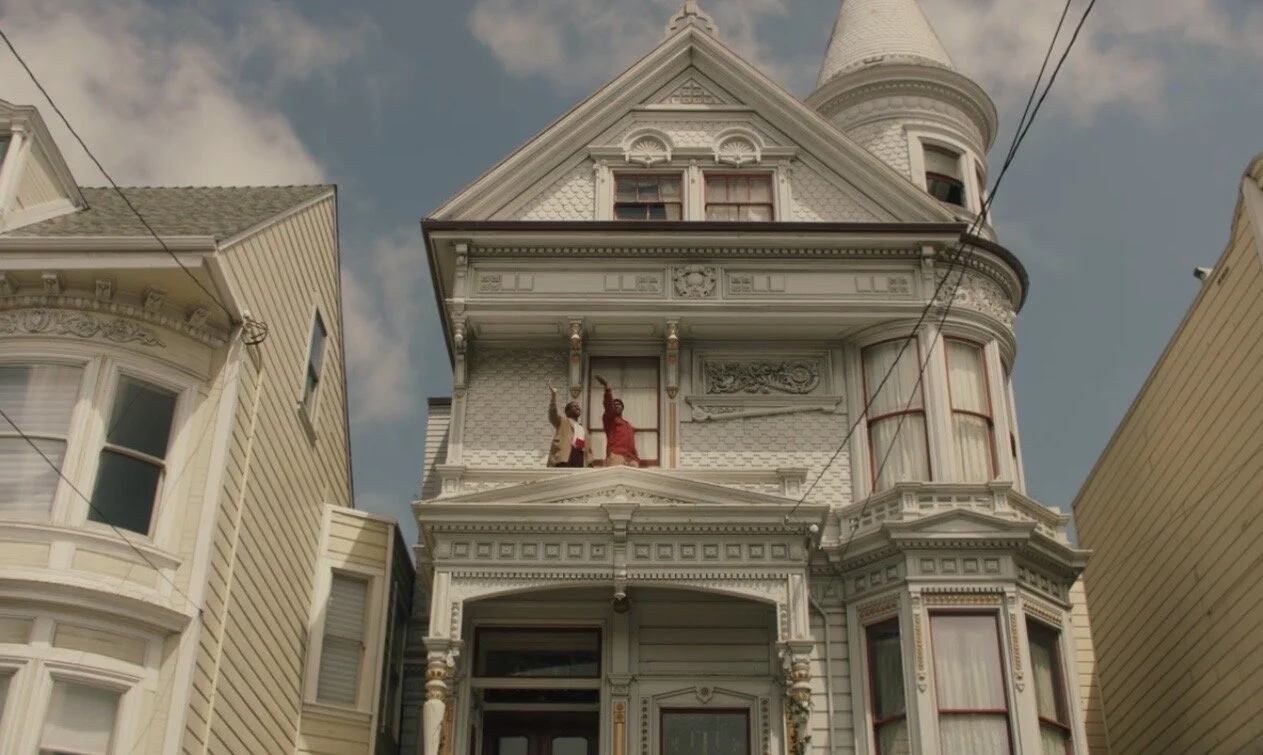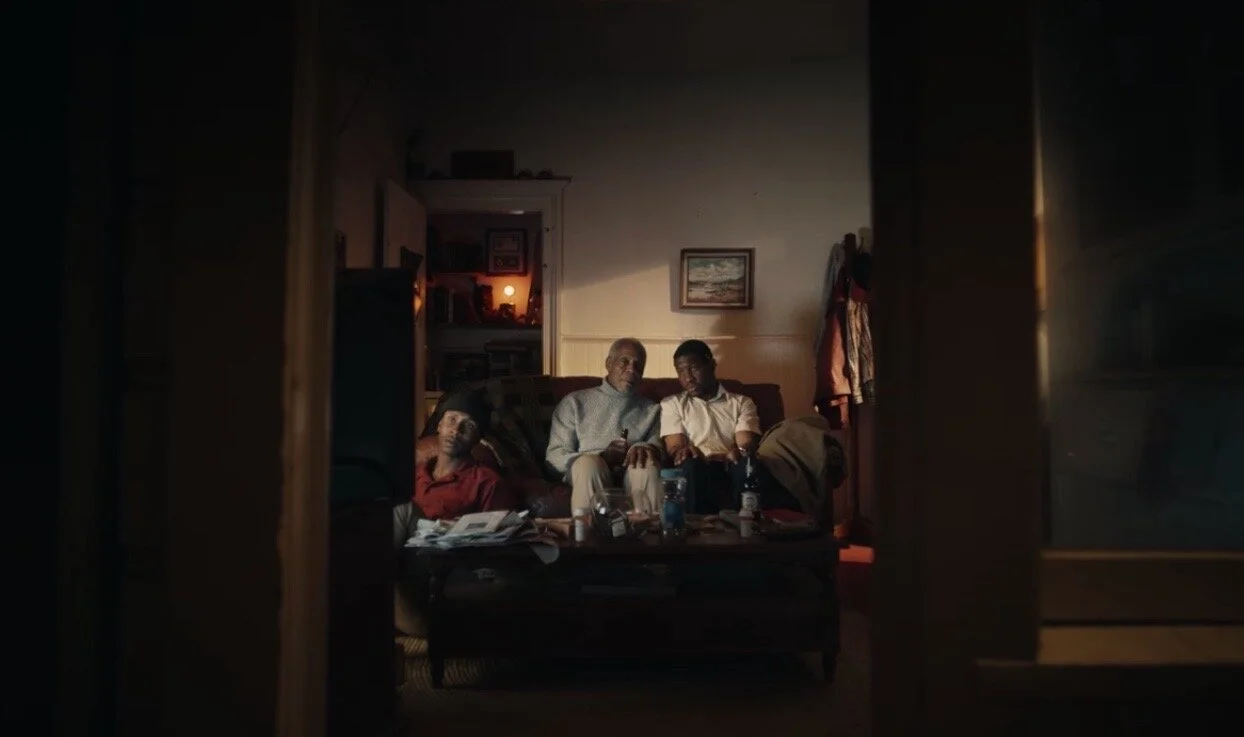THE LAST BLACK MAN IN SAN FRANCISCO: My Favorite Love Story of 2019
Rating: 🥐🥐🥐🥐🥐🥐🥐🥐
[Trailer]
Joe Talbot starts off his debut feature with the face of a young Black girl named Jasmine, missing teeth and ball barrettes in her hair. She’s curiously peering up at something, trying to decipher what exactly she’s looking at. We find out that she’s staring at a man in a hazmat suit participating in a cleanup of some sort. We then hear her mother calling out for her, and Jasmine happily skips past the man, going about her five-year-old business. It’s a weird shot to start the film off with, but we eventually learn that it ties into the larger tale at hand: one of a city facing the ramifications of gentrification, leaving its original minority residents to suffer the consequences, such as having to live near a contaminated body of water -- an issue which is just now being addressed due to an influx of new, wealthier residents.
The Last Black Man in San Francisco exists between being a love letter to a city and a social commentary on the rapid changes that are occurring in urban hubs around the country. It centers around best friends Jimmie and Montgomery (“Mont”), respectively played by Jimmie Fails and Jonathan Majors, as Jimmie tries his best to reclaim his childhood home that he loves dearly. The film documents his struggles in trying to do so, as the value of the Victorian painted lady originally built by his grandfather is now roughly $4 million. Last Black Man is loosely based on Fails’ own life, as he and director/co-writer Joe Talbot grew up together and dreamt of making the movie since they were teens.
Yes, this film has a lot to say about environmental racism, increasing property value, and home ownership. Jimmie hitches a ride into town on the back of an açaí bowl truck. At one point, he gets hit in the head with a croissant, thrown at him by one of the current homeowners of his beloved house, as her husband whines about how much they paid for those pastries. These small details subtly capture what gentrification does to a place, but what really compels me to repeatedly watch this film are the love stories between its characters, because that, to me, is what it’s about at its core. A story about love. The love between Jimmie and Mont. Between Mont and his grandfather. Between Jimmie and his childhood home. Between Mont and his playwriting. Between the central characters - and Joe Talbot himself - and San Francisco. The precious and genuine nature of these fond relationships is what really keeps me invested in the storyline, my eyes glued to the screen.
The best-friendship between Jimmie and Mont is one between Black men that I don’t see gracing the big screen enough. They’re sensitive and expressive, emotionally intelligent, yet tough and resilient. They’re honest with each other, affectionate and caring. Their friendship is contrasted with that of the group of tough guys that hang out on their block, not doing a damn thing all day besides standing around ridiculing each other. This group is constantly pushing one another to their limits, provoking themselves to prove their masculinity. To prove that they ain’t soft. To prove that they ain’t a bitch. I’ve seen groups of guys like this time and time again in my own hometown, even on my own block. This is a reality. Unbeknownst to them, they’re constantly continuing the cycle of toxic masculinity that is ever-present amongst Black males, when they all could really appreciate a hug or a shoulder to cry on. And then there are guys like Mont, at times unhinged - but gentle, sincere and well-meaning. This type of Black man exists, but is oftentimes left out of feature films.
Mont is most likely the person he is largely due in part to his relationship with his grandfather, an emotional bond that I could’ve spent the entire two hours of runtime watching more of. Mont and Grandpa Allen (brought to life through a sharp yet tender performance by Danny Glover) spend their nights watching old crime dramas. Mont describes what unfolds on tv to his grandfather, as he is blind. Together they giggle and gasp, and of course are accompanied by Jimmie, who sleeps on the floor in Mont’s converted garage bedroom. Grandpa Allen and Mont display a physical and emotional closeness that’s lacking in Jimmie’s own life. The closest thing he has to that, besides Mont’s companionship, would be his broken relationship with his own estranged father, which doesn’t even come close. But the love that emanates in the friendship between our two leads is one that is unwavering. At one point, Mont says to Jimmie, “I’m with you, bro.” To that, Jimmie replies, “You always been with me,” saying it as matter-of-factly as reciting the time. It’s beautiful to watch.
This film comments on a lot of pertinent social topics, but its depictions of multi-layered male relationships are what sucked me in. Its narrative structure is simultaneously surreal and grounded in reality, sometimes seeming like a dream sequence before it smacks you in the face with a conversation you would probably unwillingly overhear in a Whole Foods. The Last Black Man in San Francisco is technically beautiful in every sense, from the photography, to the unconventional camera angles, to the somber, triumphant score, to the lyrical pacing from scene to scene. I was composed during my most recent viewing, but I full-on bawled at least six times in the theater. It’s breathtaking and completely bittersweet, reminding you to fight for the things you’ve lost, but still love.




Margeaux is a music and film lover living in Austin, TX. She loves (Sandy) Alex G, sleeping, and crying over Björk.